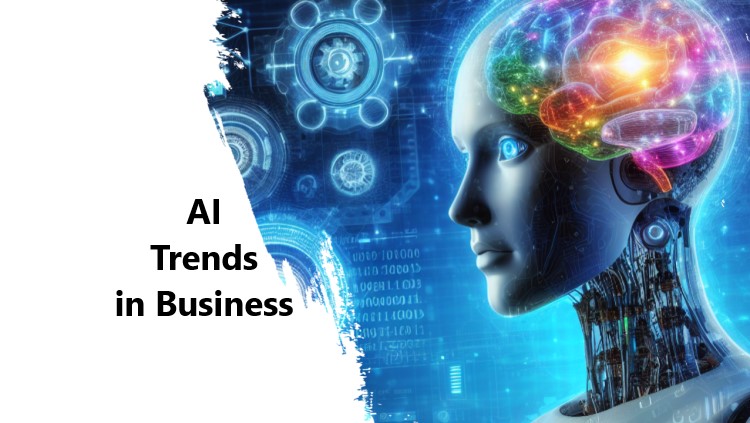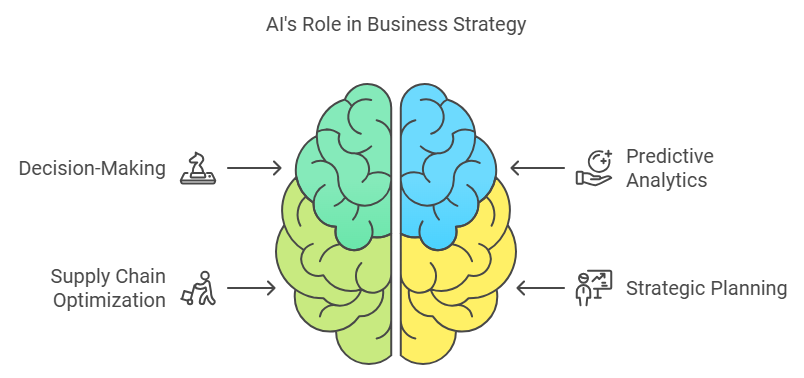
As AI adoption increases, it’s essential to explore its potential benefits and challenges. Businesses are using AI to optimize processes, predict trends, and deliver customized experiences. At the same time, ethical a swell as regulatory considerations demand careful attention. Balancing these factors allows you to create sustainable and effective strategies.
By staying informed about AI developments, you can make smarter decisions for your organization. Whether it’s enhancing productivity or addressing social impact, AI has a growing role. Exploring these trends positions you to remain competitive in a rapidly evolving environment.
The Rise of Generative AI and Its Impact on Innovation
Generative AI models like GPT as well as DALL-E are reshaping creative processes across industries. These tools generate text, images, and designs, offering innovative ways to approach complex tasks. By reducing time spent on routine work, they allow you to focus on refining ideas and strategies. This shift is driving businesses to rethink how creativity can be scaled.
In marketing, generative AI makes it easier to produce personalized content. AI tools can quickly create tailored advertisements and messages that resonate with specific audiences. This capability enhances customer engagement and also helps your brand stand out. From social media campaigns to email outreach, AI enables businesses to respond faster to changing consumer needs.
Product development also benefits significantly from generative AI. By analyzing large datasets, AI can predict market trends and consumer preferences. These insights guide the design of prototypes and product features, helping you bring innovative ideas to market faster. Businesses are leveraging AI to streamline processes and also reduce costs while maintaining high-quality outputs.
As AI trends in business continue to evolve, adopting generative AI can provide a competitive edge. While these technologies transform workflows, it’s important to combine them with human creativity. This balance ensures that your strategies remain authentic and aligned with your company’s vision.
AI in Decision-Making and Predictive Analytics
AI is revolutionizing decision-making and predictive analytics in business. By analyzing large datasets, AI helps you forecast market trends with greater accuracy. These insights enable faster and more informed strategic planning. Businesses increasingly rely on AI to anticipate customer needs and adjust to shifting market demands.
Supply chain optimization is another area where AI is making significant strides. Predictive models can identify potential disruptions and also recommend adjustments to improve efficiency. For example, AI can help you optimize inventory levels, reducing waste and minimizing costs. With these tools, businesses are achieving better control over their operations.
Strategic planning benefits greatly from AI-driven predictive analytics. By identifying patterns in historical data, AI can provide actionable insights. These insights guide decisions about investments, product launches, as well as resource allocation. Using AI in this way allows you to focus on opportunities that drive growth.
As AI trends in business evolve, its role in decision-making will continue to grow. By adopting predictive analytics, you can respond more effectively to challenges and opportunities. Balancing AI tools with human judgment ensures your strategies stay adaptable and effective.
Automation and Workforce Transformation
AI-driven automation is transforming the workplace by reshaping roles and improving efficiency. Automation tools handle repetitive tasks, freeing you to focus on strategic initiatives. This shift allows businesses to allocate resources more effectively and deliver better results.
As automation replaces mundane tasks, it also creates opportunities for new roles. Emerging jobs often require skills in managing AI systems, data analysis, as well as process improvement. These roles encourage you to develop expertise in areas that drive innovation and growth. Workforce transformation is happening across industries as businesses adapt to these changes.
Improved productivity is one of the key benefits of automation. AI tools can process data, perform routine calculations, and also monitor systems more quickly than humans. By reducing manual work, automation helps you achieve faster outcomes with fewer errors. These efficiencies lead to cost savings and increased competitiveness.
AI trends in business show a clear shift toward integrating automation into daily operations. Adopting these tools allows businesses to remain agile and forward-thinking. Combining automation with human skills ensures a balanced approach that fosters creativity and innovation.
Personalized Customer Experiences with AI
AI is reshaping how businesses engage with customers by delivering personalized experiences. Chatbots play a significant role in improving interactions. They respond quickly to customer queries, providing assistance without delays. This approach enhances satisfaction and builds trust.
Recommendation systems powered by AI tailor suggestions to individual preferences. These systems analyze data to offer relevant products or services. By using this technology, you can create experiences that resonate with each customer. This level of personalization increases loyalty and encourages repeat business.
AI also strengthens marketing strategies by tailoring campaigns to specific audiences. AI tools analyze behaviors to predict what content will engage your customers. You can use these insights to refine messaging as well as target the right groups. This focused approach helps improve conversion rates and also reduce wasted efforts.
As AI trends in business evolve, personalized customer experiences will become more common. Adopting AI-driven tools allows you to meet customer needs effectively. Combining these tools with human oversight ensures your efforts remain authentic and customer-focused.
AI for Sustainability and Corporate Responsibility
AI is becoming a key tool for businesses aiming to improve sustainability and corporate responsibility. Companies use AI for environmental monitoring, allowing you to track as well as analyze data on pollution, deforestation, and resource consumption. These insights help you identify areas for improvement and take actionable steps toward reducing your environmental impact.
Energy efficiency is another area where AI plays an important role. AI systems optimize energy usage by analyzing patterns as well as suggesting adjustments in real-time. For example, AI can adjust heating, cooling, and lighting systems in facilities to lower energy consumption. These efforts not only reduce costs but also contribute to sustainability goals.
Social impact initiatives also benefit from AI-driven approaches. Businesses use AI to better understand the needs of underserved communities. With predictive tools, you can allocate resources more effectively, improving outcomes for social programs. AI also helps monitor supply chains, promoting ethical practices and also reducing waste.
Additionally, AI trends in business increasingly point to the importance of integrating these tools for long-term impact. Leveraging AI in sustainability efforts allows you to align with environmental and social priorities. Combining technology with a commitment to responsibility ensures meaningful progress toward shared goals.
Ethical and Regulatory Challenges in AI Adoption
Adopting AI presents several ethical and regulatory challenges that businesses must address. Data privacy concerns are among the most pressing issues. With AI processing vast amounts of personal information, you need to handle data responsibly. Implementing strong safeguards as well as transparent practices builds trust and reduces risks.
Algorithmic biases also pose significant challenges. AI systems can unintentionally reinforce biases if trained on unbalanced data. You should regularly audit and refine algorithms to prevent unfair outcomes. Ensuring inclusivity in data sources and decision-making processes is critical for ethical AI use.
The legal landscape surrounding AI technologies is evolving rapidly. Governments and organizations are introducing regulations to address issues like accountability and transparency. Staying updated on these changes helps you remain compliant and proactive. Adapting your AI practices to align with new rules reduces the potential for legal complications.
In addition, AI trends in business highlight the importance of balancing innovation with responsibility. Addressing ethical and also regulatory challenges is key to integrating AI successfully. By prioritizing fairness, privacy, and compliance, you can use AI to drive meaningful progress.
Conclusion
AI trends in business continue to shape the future across industries. From automation to sustainability, these technologies offer immense potential. By adopting AI thoughtfully, you can improve efficiency, enhance customer experiences, and also drive innovation. At the same time, addressing ethical concerns and regulatory changes is critical to maintaining trust and compliance.
In conclusion, balancing technological advancements with human creativity ensures your strategies remain effective and authentic. As you integrate AI into your operations, staying informed about trends and challenges is essential. With the right approach, AI can help you achieve meaningful progress as well as long-term success.



